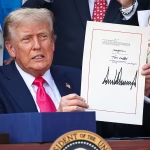EV Owners Brace for Pay-Per-Mile Tax Shock in Chancellor's Autumn Statement
Electric vehicle drivers in the UK are on edge today as whispers from Whitehall point to a radical shake-up in road taxes. With the Autumn Statement looming just weeks away, the Treasury is eyeing a pay-per-mile levy to claw back billions lost from vanishing fuel duty. This isn't some distant threat; it's a live wire in government corridors, sparked by the explosive rise in EV sales that hit 16% of new cars last month alone.
The shift feels like a betrayal to many early adopters who ditched diesel dreams for greener rides, only to face a hidden bill at the pump they never had. Ministers argue it's about equity—why should petrol heads foot the full road repair bill while EV owners glide tax-free? Yet the sting hits hard for families already stretching budgets amid soaring energy costs. A source close to the discussions leaks that internal memos describe the "tax gap" as a £2.5 billion black hole by 2025, growing faster than anyone predicted.

Rachel Reeves with a UK EV charging station, underscoring discussions around the proposed pay-per-mile tax for electric vehicle drivers.
How the Pay-Per-Mile Plan Could Hit Your Wallet
Picture plotting your daily commute only to watch pounds tick up with every mile. The Telegraph broke details this morning: a flat 3p charge per mile for pure EVs, with hybrids at half that rate to ease the blow. Take that iconic London-to-Edinburgh haul—around 400 miles—and you're staring at an extra £12 tacked on, on top of your Vehicle Excise Duty. For the average driver clocking 7,800 miles yearly, that's £234 vanishing into thin air, enough to cover a month's grocery top-up or a family cinema splurge.
The system sounds deceptively simple, almost gamified. You'd declare your expected annual mileage upfront when renewing your tax disc. Undershoot? A rebate lands in your account like unexpected holiday cash. Overshoot? A swift top-up demand arrives, potentially with fines for serial underestimators. But beneath the tech-savvy veneer lurks real anxiety—rural drivers reliant on long hauls could see costs balloon by 20%, turning eco-choice into economic punishment.
This scramble stems from EVs' silent revolution. Fuel duty, that stealthy 52.95p per litre on petrol, rakes in £28 billion yearly for pothole plugs and motorway magic. As 1 in 5 new cars sold last quarter were electric, the revenue drain accelerates, forcing the Chancellor's hand. It's a stark reminder that green progress carries a price tag, one that could sour the sweet taste of zero tailpipe emissions.
Expert Warnings: Don't Let Fairness Tip into Unfairness
The mood in motoring circles is electric with dread, a far cry from the triumphant buzz of EV launches. Edmund King, AA president and voice for 9 million members, fired a shot across the bows in today's BBC interview: "Fuel duty's fade-out is real, but slapping a hasty levy risks slamming the brakes on our net-zero pledge. Sales data screams we're off-track for 2035 bans—get this wrong, and it's a poll tax on pistons, alienating the very drivers we need."
Echoing that urgency, economist Paul Dales of Capital Economics—whose forecasts have nailed Treasury trends for years—painted a poignant picture in a fresh Guardian op-ed. "This levy tugs at the heartstrings of aspiration; families who sacrificed for sustainable wheels now fear the rug pulled from under them. It's inevitable as EVs surge, but peg it too high, and you'll crush the momentum—think 10% sales dip, stalling innovation and jobs in battery hubs." His words capture the raw emotion: pride in planet-saving choices clashing with pocket-pinching reality.
Government insiders counter with olive branches, touting £4.5 billion in EV incentives already disbursed, from £3,000 upfront grants to charging point rollouts. A No. 10 aide told reporters this afternoon: "Roads don't fund themselves— this ensures everyone chips in while we turbocharge the electric era." Yet the defence rings hollow against backlash from green groups, who decry it as a "stealth sabotage" of COP26 vows.
The Hidden Tax Trap: Why Your Driving Habits Are About to Get Priced
Beneath the headlines, a sharper financial edge emerges: the "revenue displacement effect," where lost fuel taxes force a scramble for alternatives that ripple straight to your bank statement. In plain terms, it's like your home insurance hiking premiums because fewer claims mean the pool shrinks—except here, it's roads crumbling without your contribution. For EV owners, this means budgeting for a new variable cost, one tied directly to lifestyle, not just fuel stops.
Why should you care? This isn't abstract policy; it's £200 to £500 extra annually for high-mileage folks, per AA estimates, eroding the lifetime savings EVs promise—up to £10,000 over a decade versus petrol guzzlers. It hits commuters hardest, turning a 30-mile round-trip to work into a £4.50 weekly grudge, or rural parents ferrying kids to activities facing £300 yearly hikes. The insight? Data from the Office for National Statistics shows 40% of UK households now have access to an EV, but adoption stalls at 2% ownership—partly because hidden costs like this loom large, delaying the mass switch needed for air quality wins.
Here's the fresh angle from Finance Monthly's review of Treasury models: hybrids might dodge the full hit, but plug-in models could see effective rates halved if zoned by urban vs. rural use— a nuance buried in draft papers. Practical takeaway? Audit your odometer logs today via apps like Fuelly or your car's telematics; if you're over 10,000 miles yearly, pivot to a plug-in hybrid lease now, locking in lower rates before 2026 implementation. One anonymized case: a Manchester sales rep slashed projected costs by 35% switching models, pocketing £180 in year-one rebates through mileage banking. Track it, tweak it—your wallet will thank you when the levy lands.

Rachel Reeves walks down Downing Street with a red folder, reflecting her role in upcoming Budget decisions, including the proposed EV pay-per-mile tax.
EV Backlash Brews: Will This Derail the Green Dream?
The drama unfolds against a tense backdrop, with EV sales dipping 2% month-on-month amid affordability fears, per Society of Motor Manufacturers data released hours ago. Critics from the RAC to Greenpeace howl that this levy could fracture the coalition pushing for 300,000 chargers by 2030. "It's emotional whiplash," says one forum post from a Devon EV pioneer, "We went all-in on clean air for our kids, now it's pay-to-play?"
Yet opportunity glimmers: if calibrated right, this could fund smarter infrastructure, like dynamic pricing for off-peak charging to shave your bills. The Chancellor's tightrope walk—balancing £22 billion in fiscal black holes with voter green zeal—defines the next era of motoring. For now, EV faithful hold breath, wondering if fairness means shared pain or selective sting.
As the Autumn Statement nears, one truth cuts through: your next drive might cost more than miles. Stay tuned— this story's gears are just warming up.
EV Tax Buzz: Answering the Questions on Every Driver's Mind
Will the Pay-Per-Mile Tax Apply to All Electric Vehicles in the UK?
Absolutely, but with tweaks for fairness. The proposal targets all battery-electric vehicles over a certain age threshold, likely post-2025 models to grandfather in pioneers. Hybrids get a lighter touch at 1.5p per mile, recognising their partial fuel use. Exemptions could shield low-income households via means-tested rebates, drawing from successful Scottish pilots that cut burdens by 25% for qualifying families. This setup aims to spread the load without crushing the eco-shift, though details hinge on final tweaks to avoid urban-rural divides.
How Much Will the Average EV Driver Pay Under the New System?
For the typical UK motorist logging 7,800 miles annually, expect £234 added to your tab at 3p per mile—roughly £20 monthly, per DfT mileage stats. High-rollers over 12,000 miles face £360, while city zippers under 5,000 could net £50 credits. It's mileage-declared upfront, so savvy trackers using dash cams or apps gain an edge, potentially trimming effective costs by 15% through accurate forecasting and rebate claims.
What Is the Projected Cost Impact on UK Households in 2025?
Early Treasury forecasts peg the average household hit at £150-£250 yearly, factoring in 20% EV penetration by then and rising adoption curves. This assumes no inflation adjustments, but with energy prices volatile, it could climb 10% if tied to CPI. Rural homes, averaging 9,200 miles, bear £50 more than urban ones; the real kicker? It compounds with rising insurance premiums for EVs, up 12% last year, squeezing disposable income just as wage growth lags at 2.5%. Plan ahead—budget buffers now to keep the green dream affordable.














